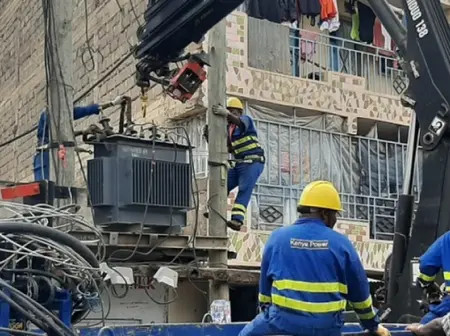Kenya’s electricity distributors and retailers will soon be required to meet strict customer service standards, including publishing service charters, reconnection timelines, and complaint-handling procedures, under new draft regulations published by the Ministry of Energy.
Every three years, distributors and retail suppliers will be required to submit a Customer Service Charter and Supply Contract to the Energy and Petroleum Regulatory Authority (EPRA) for approval. If a licensee fails to do so, EPRA will prescribe one on its behalf within 60 days. The charters must detail Reconnection after payment must occur within 24 hours, consumers must be notified of planned outages at least 48 hours in advance, and meter testing results must be shared within 14 days.
The draft also establishes standard service timelines for the entire sector. Utilities will have 28 days to issue quotations after applications for supply, another 28 days for construction once payment is made, and three days to install meters. Restoration after unplanned interruptions is capped at 12 hours in urban areas for minor faults, and 24 hours in rural areas. In cases of major faults, the limit extends to 120 hours in urban areas and 240 hours in rural ones. Deposit refunds upon closure of accounts must be processed within 14 days.
Beyond timelines, the regulations would strengthen consumer rights to information. Licensees must provide 24-hour telephone services to receive and respond to emergencies, complaints, and queries. They are also required to notify consumers of tariff changes, publish maps of service centers, and make billing and meter data available on request. Customers will be entitled to guidance on safe use of electricity, meter-reading methods, and procedures for lodging and resolving billing disputes.
The draft introduces a structured framework for complaint handling. Utilities must establish formal procedures, subject to EPRA approval, to address reliability, billing, and quality of service concerns. Technical complaints are to be resolved within seven working days, while non-technical complaints must be addressed within 30 working days. Companies are required to maintain records of all complaints, including complainant details, outage times, and restoration periods. These records will form part of EPRA’s oversight of customer service.
If adopted, the rules would represent a significant shift in how utilities interact with consumers. For decades, Kenya’s electricity users have faced long delays, unclear processes, and limited recourse in service disputes. By embedding strict timelines and transparency requirements in law, the government is aiming to make utilities more responsive and accountable.
If implemented effectively, the measures could bring Kenya’s electricity sector closer to the kind of service standards seen in other regulated industries such as telecommunications, where customer charters and enforceable timelines have already transformed user experience.
For consumers, this could mean faster service, clearer communication, and greater accountability when disputes arise. For utilities, it represents a new standard that will require investments in customer service systems and a cultural shift toward consumer-centered operations.

Leave a Reply